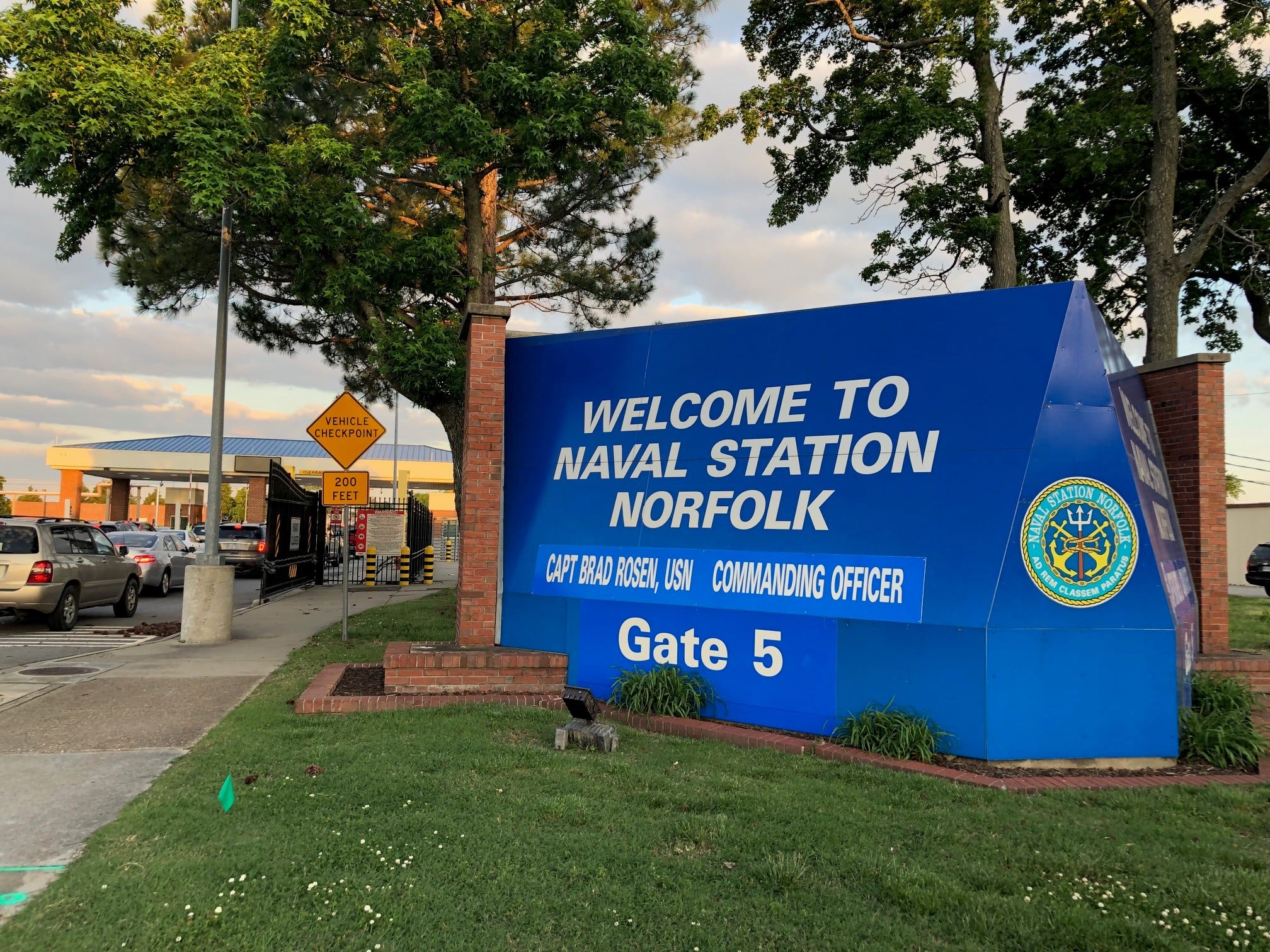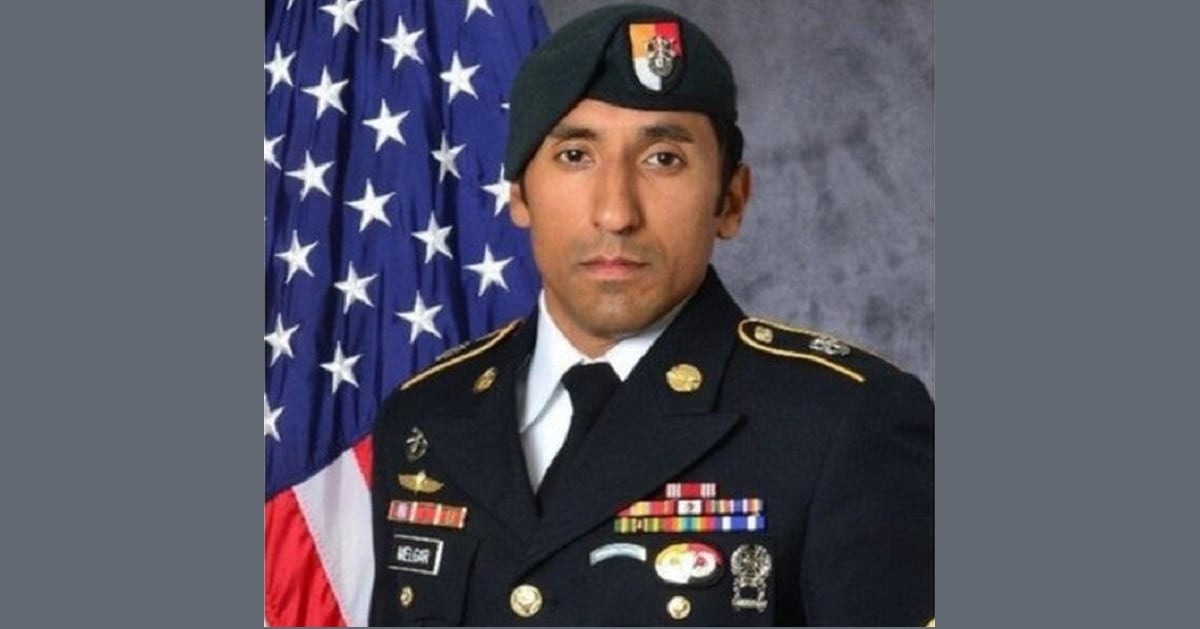NAVAL STATION NORFOLK, Va. — Prosecutors in the murder trial of a Marine Raider charged along with three others in the death of an Army Green Beret told the jury that the Marine betrayed his comrade, helped kill him during a planned hazing incident, and then tried to cover up the incident by lying to investigators.
Gunnery Sgt. Mario A. Madera-Rodriguez faces charges of conspiracy, assault, obstruction of justice, burglary, false official statements, involuntary manslaughter and felony murder in the June 4, 2017, strangulation death of Army Staff Sgt. Logan Melgar in Bamako, Mali.
RELATED

Three fellow co-defendants, another Marine Raider and two Navy SEALs, have already pled guilty to their part in the death and have been sentenced. Madera-Rodriguez is the only one of the four to go to trial. He has pleaded not guilty.
If convicted of murder, he faces a possible sentence of life without parole.
Marine Capt. Jason Samuel, a prosecuting attorney, laid out a blow-by-blow timeline of events the night and early morning hours before Melgar’s death in his bedroom of the Army-Navy residence he shared with Navy SEALs and fellow soldiers on deployment to the African nation.
“Their plan was to haze him that night, to humiliate him, but they killed him,” Samuel told the jury.

The defense team’s opening statements were held in a session closed to the public because their statements contained classified information, officials said.
The four men involved in Melgar’s death immediately tried to cover up the crime, Samuel said, repeatedly lying to officials.
But Jennifer Brown, a female friend of Madera-Rodriguez who was with the men the night before Melgar died, later told investigators what they had planned.
Navy SEAL Chief Special Warfare Officer Adam C. Matthews came to Bamako, Mali, shortly before the events that led to Melgar’s death.
Soon after arriving, Matthews met with Chief SWO Tony E. DeDolph and other members of the special operations team for a contingency planning support mission.
But DeDolph told Matthews that he and others had problems with Melgar and wanted to put him in line by hazing him.
In interviews, those who’d talked with Melgar revealed the staff sergeant was fed up with “juvenile behavior” by DeDolph and other special operators. He said he was anxious to finish his deployment and return home.
Samuel told the jury that on the night of June 3, Melgar was driving to a party at the French Embassy in Bamako. DeDolph, Madera-Rodriguez and fellow Marine Raider Staff Sgt. Kevn Maxwell were following him in another vehicle, but they became separated.
The trio thought that he’d deliberately ditched them and saw it as a sign of disrespect. They then diverted to a local bar called the “Appaloosa.” While drinking, DeDolph came up with the idea to teach Melgar a “lesson” by hazing him, Samuel said.
They contacted the two Malian guards at the Army-Navy house, telling them they needed to be ready to help pull a “joke” on Melgar.
Over the next few hours, they hatched a detailed plan. Madera-Rodriguez would bust open Melgar’s door with a sledgehammer. They’d all rush in on the sleeping Melgar, and Maxwell would pull back the mosquito netting around his bed.
Then, DeDolph, a former professional in mixed martial arts, would pounce on Melgar and put him in a chokehold.
Matthews would then jump in, helping duct tape Melgar, the prosecutor said. They needed him restrained so that they could remove his clothing and bring in one of the Malian guards in his underwear with a belt around his neck like a leash.
They then planned to take compromising photos and videos of Melgar with the Malian man.
Madera-Rodriguez’ other task was to put on music for the event.
“He broke into that room and provided the soundtrack to Staff Sgt. Melgar’s strangulation,” Samuel said.
The group dubbed the event “Operation Tossed Salad,” a name for a sex act.
The quartet and the Malian man, lined up outside Melgar’s door and broke through with the sledgehammer, according to court testimony.
Suddenly awakened, Melgar fought back, but DeDolph put him in the chokehold facedown on the bed as the others began to restrain and duct tape him, Samuel said.
As they struggled, Melgar stopped breathing.
The men stopped and began attempts to resuscitate him. They even tried a field expedient tracheotomy. But when that failed, they took him to a nearby medical clinic where he was later pronounced dead.
Almost immediately, the two SEALs told the Marines they would deal with the incident and not mention them, Samuel said.
They made up a story that DeDolph had been practicing hand-to-hand combat drills with Melgar, who stopped breathing. They later said they thought Melgar had been drinking and that might have contributed to his death, according to prosecutors.
But witnesses later told investigators that Melgar didn’t drink alcohol.
A week after Melgar’s death, Madera-Rodriguez and Maxwell accompanied Army investigators to the crime scene as security. Madera-Rodriguez even walked them through the fake story of a wrestling match gone wrong between DeDolph and Melgar.
But investigators found duct tape under Melgar’s bed with his blood on it. They also had talked with Brown, who had been at the Appaloosa bar with the men the night they talked about their plan.
Cell phone records and text messages showed that Madera-Rodriguez and the others had gone from the Appaloosa bar to a restaurant, then stopped at a Marine house to pick up duct tape and the sledgehammer at about 4 a.m. before heading to the Army-Navy house.
The men broke into Melgar’s room and committed the attack between 5:25 a.m. and 5:35 a.m., Samuel said.
The timing matters because whether it happened at night or during the day may have bearing on some aspects of the burglary charge. Samuel told jurors an expert would testify, explaining why it was nighttime when this occurred.
Subsequent interviews by military investigators uncovered what had happened, which resulted in the charges the men faced in their respective courts martial.
The trial began Monday with jury selection, which lasted until late Thursday. An all-male jury of eight members, four enlisted and four commissioned officers, four Marines and four sailors were selected.
Madera-Rodriguez chose to have a jury trial for his general court-martial. The members must have a rank equal to or greater than the defendant’s.
The highest ranking member is an O-5, Navy commander. The lowest ranking member is an E-8, Navy senior chief petty officer.
In January, DeDolph pleaded guilty to involuntary manslaughter. He was sentenced to 10 years in prison, reduction to E-1, forfeiture of pay and a dishonorable discharge.
Maxwell pleaded guilty in June 2019 to negligent homicide, conspiracy to commit assault, hazing, obstruction of justice and making false official statements. He received four years of confinement, reduction in rank to E-1 and a bad conduct discharge.
In May 2019, Matthews pleaded guilty to the conspiracy and related charges. He was given one year of confinement, reduction to petty officer second class and a bad conduct discharge.
All three are expected to testify as prosecution witnesses as part of their plea agreements in the trial of Madera-Rodriguez.
Todd South has written about crime, courts, government and the military for multiple publications since 2004 and was named a 2014 Pulitzer finalist for a co-written project on witness intimidation. Todd is a Marine veteran of the Iraq War.



